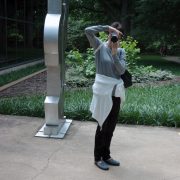You could write a book on why readers dislike ambiguity in fiction. Someone probably has. It might seem arrogant (or at least reductive) to address the question in 500 words or less, but I’m going to try.
The answer comes down to what a reader wants — challenge or comfort.
Ambiguity is a lack of clarity or certainty in a situation. In fiction, it’s found in open endings, unsolved disappearances, characters whose nature remains mysterious, events that may or may not be real. For me, ambiguity enriches a story and keeps me thinking long after I put the book aside. It makes the story more real. More like life.
We live with ambiguity every day. Someone texts a friend several times and gets no reply. An insecure person thinks, “I did something to make her hate me.” A fearful person thinks, “Maybe she’s in trouble.” An optimistic person thinks, “She’s having too much fun to check her messages.” The point is, people feel the need to come up with an explanation.
Oftentimes more is at stake. You interview for a job. The interviewer promises to get back to you, but doesn’t. Maybe you should call and ask whether you’re still in the running. But what if your call annoys the interviewer?
You meet someone and want to start dating. But maybe he’s a con artist with a string of ex-wives. You run an online search and hope it uncovers the truth. Some of the truth anyway.
The uncertainty of life can be exhausting and anxiety provoking. What a comfort to escape into a story where the mystery is solved, the lovers are united, and both characters and reader stand on solid fictional ground.
The trouble is, the real complexity of experience is missing from those stories.
Margaret Atwood’s “Death By Landscape” is a short story built on ambiguity. The protagonist, Lois, goes to summer camp and meets Lucy. The two girls become friends over several summers together at camp. One day while they’re alone on a hike, Lucy goes off to pee and never comes back. A search of the surrounding countryside turns up nothing. The owner of the summer camp blames Lois.
For the rest of her life, Lois carries the guilt and perplexity of not knowing what happened to her friend. She collects paintings of wilderness landscapes but otherwise pushes the experience to the back of her mind — until she gets old. With her husband dead and her children gone, the mystery of Lucy’s disappearance reemerges. Lois spends her days gazing at the landscape paintings in search of Lucy.
“Death By Landscape” illustrates how devastating lack of closure can be. Lois seeks closure in her collection of landscapes. They are attempts to recapture Lucy by placing borders around the uncharted territory that swallowed her up.
Many readers seek closure in fiction and abhor the holes where certainty and clarity disappear. I can’t really blame them.













Leave a Reply
Want to join the discussion?Feel free to contribute!